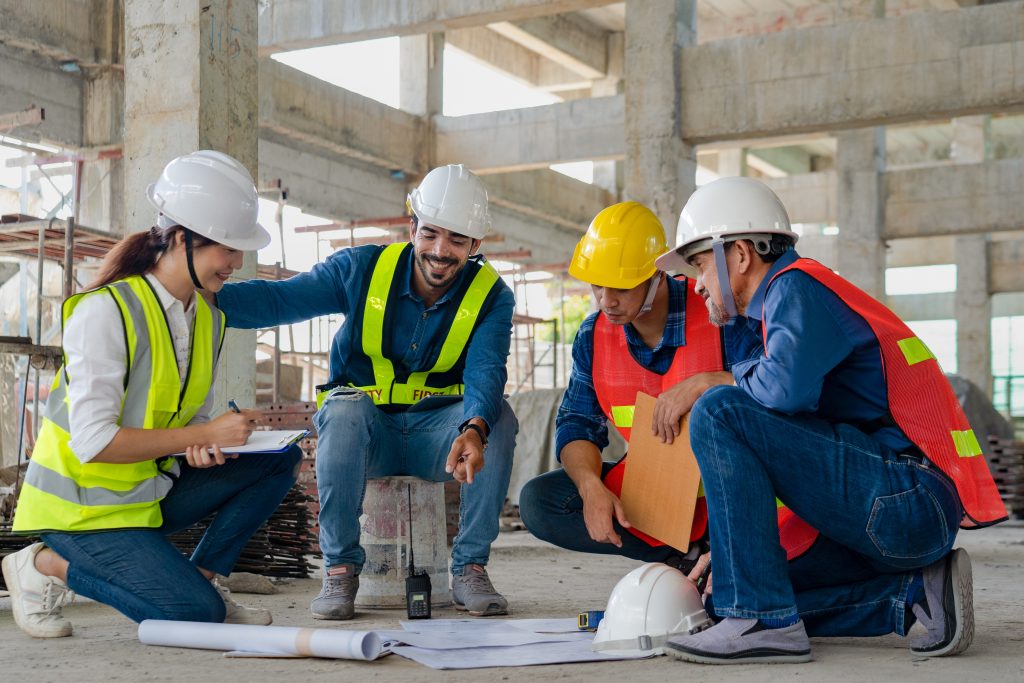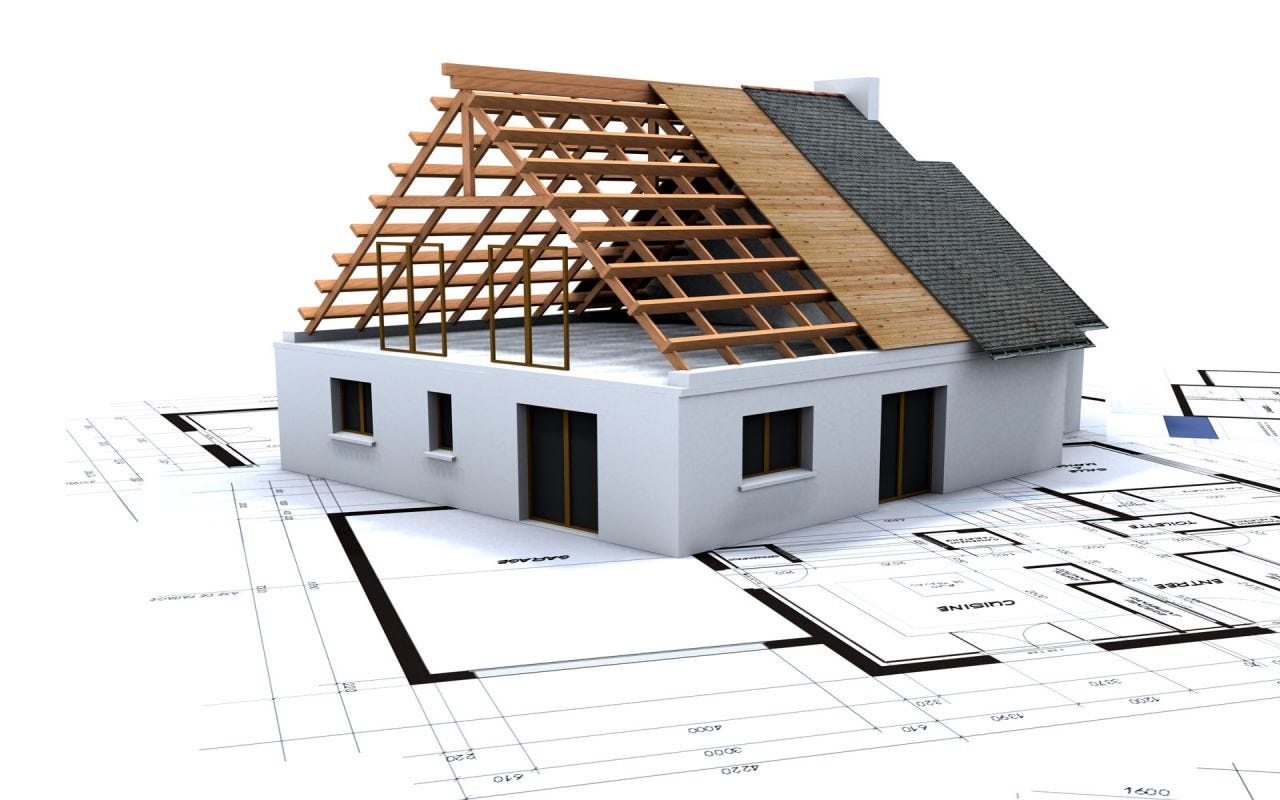How to Find a Reliable House Construction Contractor in Lahore: A Comprehensive Guide
Finding a reliable house construction contractor in Lahore is crucial for a successful and stress-free construction project. With numerous options available, it’s essential to make an informed decision. This article will provide valuable tips and guidelines to hire a trustworthy contractor who can deliver quality results. From understanding the construction process to selecting the suitable materials, we’ve got you covered.
Finding a reliable house construction contractor in Lahore can be a daunting task, given the abundance of options available in the city’s bustling construction industry. However, with a comprehensive guide, this process can be made much easier and more successful. Firstly, it is essential to conduct thorough research and gather recommendations from friends, family, and acquaintances who have previously undertaken construction projects in Lahore. Online reviews and testimonials can also provide valuable insights into the credibility and performance of various contractors.
Next, it is crucial to check the contractor’s credentials and licenses to ensure they are qualified and legally authorized to operate in the area. Verifying their past projects and portfolio can give a clear picture of their expertise and the quality of work they deliver. Always request multiple quotes from different contractors to compare prices and services offered. However, beware of unusually low prices, as they might indicate subpar materials or workmanship.
Furthermore, a reliable contractor should be transparent about timelines, costs, and materials used. It is essential to get a detailed written contract outlining all the terms and conditions to avoid any misunderstandings later on. Additionally, check if the contractor has insurance coverage to protect against any potential accidents or damages during the construction process.
What are the Best Tips for the Construction of a House?
When constructing a house, several essential tips ensure a successful project. Let’s elaborate on each point and comprehensively answer the question.
Clearly define your project requirements and budget:
Before starting any construction project, it’s crucial to understand your needs and expectations clearly. Consider factors such as the size of the house, the number of rooms, specific features or amenities you desire, and any other special requirements. Simultaneously, determine your budget to establish realistic expectations and avoid unnecessary expenses.
Research and shortlist reputable contractors with a proven track record:
Conduct thorough research to identify reputable contractors in your area. Look for companies with a solid reputation and a history of successful projects. Seek recommendations from friends, family, or professionals in the industry. Online reviews and testimonials can also provide valuable insights into contractors’ reliability and expertise.
Check their certifications, licences, and insurance coverage:
Verify that the contractors you are considering possess the necessary certifications and licences your local authorities require. This ensures they have the expertise and legal authorization to do the construction work. Additionally, confirm that they have adequate insurance coverage, including general liability insurance, to protect you from potential risks or accidents during construction.
Request references and review their previous projects:
Ask the shortlisted contractors for references from their past clients. Contact these references to inquire about their experience working with the contractor and the quality of their work. Furthermore, visit some of the contractor’s completed projects to assess the quality of construction, attention to detail, and overall craftsmanship.
Evaluate their communication skills and responsiveness:
Effective communication is vital for a successful construction project. Assess the contractor’s communication skills during the initial interactions. They should be attentive, responsive, and able to understand and address your concerns and requirements. A contractor who communicates clearly and promptly is more likely to understand your vision and keep you updated throughout construction.
Get detailed written estimates and compare them:
Request detailed written estimates from the contractors, outlining the scope of work, materials, labour costs, and additional expenses. Carefully review each forecast to ensure you understand what is included and identify any variations. While it may be tempting to choose the lowest bid, consider the contractor’s reputation, experience, and quality of work.
Don’t compromise on quality for the sake of cost:
While staying within your budget is essential, compromising quality can lead to issues and additional expenses in the long run. Ensure that the contractors you choose prioritise high-quality materials, skilled craftsmanship, and adherence to building codes and regulations. Request information about the brands and types of materials they plan to use to assess their durability and suitability for your project.
By following these tips, you can increase the chances of a successful construction project and end up with a house that meets your expectations regarding quality, functionality, and budget. Remember to exercise due diligence throughout the process and make informed decisions based on thorough research and evaluation.
What is the Best Material to Build a House With?
The best material to build a house with depends on various factors, but considering the climate, durability, energy efficiency, and budget is crucial. When discussing your preferences and requirements with the contractor, ensure they understand your vision for the house.
Considering Lahore’s climate and environmental factors, opt for durable materials such as concrete, steel, or brick that can withstand local conditions—source materials from reliable suppliers to ensure their quality and authenticity. Discuss energy-efficient options for insulation and windows to reduce energy consumption.
Lastly, strike a balance between your budget and the longevity and maintenance requirements of the materials. Considering these factors, you can choose the best material that meets your needs and ensures a solid foundation for your house construction project in Lahore.
Choosing the best material to build a house
Several factors need to be considered when choosing the best material to build a house. Here’s a detailed explanation of each point, along with a comprehensive answer to the question:
Discuss your preferences and requirements with the contractor:
Having a clear conversation with your contractor about your preferences and specific requirements is crucial. This includes discussing your desired aesthetic, functionality, and any features you want for your house. The contractor can guide you on the best material choices that align with your vision by conveying your expectations.
Consider the climate and environmental factors in Lahore:
Lahore’s climate and environmental conditions play a significant role in determining suitable construction materials. For instance, if Lahore experiences extreme temperatures or high humidity, fabrics with good insulation properties should be considered. Additionally, materials with high structural integrity and resistance to such events should be prioritised if the area is prone to earthquakes or floods.
Opt for durable materials such as concrete, steel, or brick:
Durable materials like concrete, steel, and brick are widely used in construction due to their strength and longevity. Concrete provides excellent structural integrity and is fire-resistant, while steel offers strength and flexibility. Bricks are known for their durability and thermal insulation properties. Considering these materials can ensure a solid and sturdy construction that withstands the test of time.
Ensure the materials are sourced from reliable suppliers:
To guarantee the quality of the materials used in your house construction, sourcing them from reliable suppliers is essential. Reputable suppliers ensure the materials meet the necessary standards and undergo quality control checks. This helps to avoid issues related to substandard or counterfeit materials, ensuring the reliability and durability of your house.
Discuss energy-efficient options for insulation and windows:
Energy efficiency is a significant consideration in modern house construction. Discussing energy-efficient options for insulation and windows with your contractor can help you create an environmentally friendly and cost-effective home. This may involve using highly insulated materials, installing double-glazed windows, and implementing efficient HVAC systems. These measures can reduce energy consumption and enhance comfort within the house.
Balance your budget with the longevity and maintenance of materials:
While choosing high-quality and durable materials is important, it’s also essential to balance your budget. Some materials may be expensive upfront but require less maintenance over time, making them cost-effective in the long run. Consider the materials’ lifespan, maintenance requirements, and overall cost of ownership to strike a balance between quality and affordability.
How Do You Build a Structurally Sound Building?

To build a structurally sound building, it is crucial to ensure that the contractor follows proper architectural and engineering standards, conducts soil and site analysis, pays attention to structural elements, follows approved construction plans, regularly inspects the construction progress, and collaborates with the contractor to address concerns promptly.
By adhering to these practices, you can ensure that the building is constructed with the necessary structural strength, stability, and compliance with regulations, resulting in a safe and durable structure.
It is crucial to follow specific steps and considerations to build a structurally sound building. Here’s an explanation of each point, along with an answer to the question:
Ensure the contractor follows proper architectural and engineering standards:
The contractor must adhere to proper architectural and engineering standards to ensure a structurally sound building. This involves following industry best practices, local building codes, and regulations. By doing so, the contractor can ensure that the construction meets safety and structural integrity requirements.
Conduct soil and site analysis to determine foundation requirements:
Before starting the construction process, conducting a thorough soil and site analysis is essential. This analysis helps determine the type of foundation required for the building based on the soil conditions, water table levels, and other geological factors. A strong foundation is essential for the overall stability and longevity of the structure.
Pay attention to structural elements like beams, columns, and walls
Structural elements such as beams, columns, and walls support the building’s load and maintain its integrity. Pay close attention to the design, material selection, and construction techniques used for these elements is vital. Proper installation and reinforcement techniques can prevent structural issues and ensure the building’s stability.
Follow approved construction plans and obtain necessary permits:
Construction plans approved by relevant authorities provide a detailed roadmap for building a structurally sound structure. It is essential to follow these plans diligently, including architectural, structural, electrical, and plumbing designs. Additionally, obtaining the necessary permits and approvals ensures the construction complies with local regulations and safety standards.
Regularly inspect the construction progress to ensure quality:
Regular inspections during the construction process are crucial to ensure the quality of artistry and compliance with the approved plans. These inspections can identify any construction defects or deviations from the design, allowing corrective measures to be taken promptly. Regular construction progress monitoring helps maintain quality standards and prevents potential issues.
Collaborate with the contractor and address any concerns promptly:
Effective communication and collaboration with the contractor are vital to building a structurally sound building. Regular meetings and discussions help address any concerns or questions that may arise during the construction process. Promptly addressing these concerns ensures that necessary actions are taken to maintain the structural integrity and quality of the building.
What are the Essential Steps in the Construction Process?
The essential steps in the construction process include site preparation, foundation construction, structural framework erection, installation of electrical, plumbing, and HVAC systems, interior and exterior finishing, final inspections, testing, and obtaining occupancy permits. By following these steps systematically and organisation, the construction project progresses smoothly, ensuring a safe and functional building.
Each step is crucial and builds upon the previous one, leading to the successful completion of the construction project.
The construction process involves several essential steps that are necessary for the successful completion of a building project. Here’s an explanation of each stage
Site preparation, including excavation and leveling:
Site preparation is the first crucial step in the construction process. It involves clearing the construction area, removing any obstructions, and preparing the site for construction. This may include excavation, leveling the ground, and ensuring proper drainage.
Foundation construction, including footings and slabs:
The foundation is the base on which the entire structure rests. It is constructed by laying footings, which distribute the weight of the building to the ground, and pouring concrete slabs. The foundation provides stability and prevents settling or shifting of the building.
Structural framework erection, including walls and roof:
Once the foundation is complete, the structural framework of the building is erected. This includes constructing walls, beams, and columns according to the approved architectural and engineering plans. The roof is also installed during this stage, protecting it from the elements.
Installation of electrical, plumbing, and HVAC systems:
After the structural framework is in place, electrical, plumbing, and HVAC (Heating, Ventilation, and Air Conditioning) systems are installed. This includes wiring the electrical circuits, installing plumbing pipes and fixtures, and setting up the HVAC system for climate control.
Interior and exterior finishing, including flooring and painting:
With the basic infrastructure, the focus shifts to the interior and exterior finishing. This involves installing flooring materials such as tiles, wood, or carpeting and applying finishes to walls, ceilings, and exterior surfaces. Painting, plastering, and other decorative touches are also done during this stage.
Final inspections, testing, and obtaining occupancy permits:
Before the building can be occupied, final inspections and tests are conducted to ensure compliance with safety regulations and building codes. Inspectors check the structural integrity, electrical systems, plumbing, and HVAC installations. Once everything meets the required standards, occupancy permits are obtained, allowing the building to be used or lived in.
Preparing for Construction: Things to Do Before Starting the Project
Before starting a construction project, critical preparatory steps should be taken to ensure a smooth and successful execution.

Define your project goals and establish a timeline:
It is crucial to define your project goals and objectives clearly. Determine what you want to achieve with the construction project and establish a timeline that outlines key milestones and deadlines. This helps provide a clear direction and allows for effective project management.
Obtain necessary approvals from local authorities:
Before starting any construction, obtaining the necessary approvals and permits from local authorities is essential. This may include building permits, zoning clearances, environmental assessments, or any other legal requirements specific to your location. Complying with these regulations ensures that the project is conducted legally and avoids potential issues in the future.
Hire an architect or designer to create detailed plans:
Engaging an architect or designer is vital to creating detailed and accurate plans for your construction project. They will translate your vision into architectural drawings and specifications, considering structural requirements, functionality, and aesthetics. These plans serve as a guide for the construction process and facilitate effective communication with contractors.
Secure financing and set a realistic budget:
Determining your project’s budget and securing appropriate financing are essential for construction preparation. Assess the financial resources available and set a realistic budget that covers all aspects of the project, including construction costs, permits, materials, and professional fees. Proper financial planning ensures that the project remains on track and avoids financial constraints during construction.
Consider hiring a project manager for oversight:
Hiring a project manager may be beneficial for complex or large-scale construction projects. A project manager oversees the construction process, ensuring it stays on schedule, within budget, and meets quality standards. They coordinate various aspects, communicate with stakeholders, and address any issues that may arise, providing efficient project oversight.
Communicate with your contractor and establish clear expectations:
Open and transparent communication with your contractor is crucial for a successful construction project. Communicate your expectations, project goals, and desired outcomes. Discuss details such as timelines, material specifications, and any specific requirements. Regular communication throughout the project ensures everyone is on the same page, minimizing misunderstandings and facilitating a smooth construction process.
Following these preparatory steps can set a solid foundation for your construction project. Defining project goals, obtaining necessary approvals, creating detailed plans, securing financing, considering professional oversight, and establishing clear communication contribute to a successful construction endeavor.





